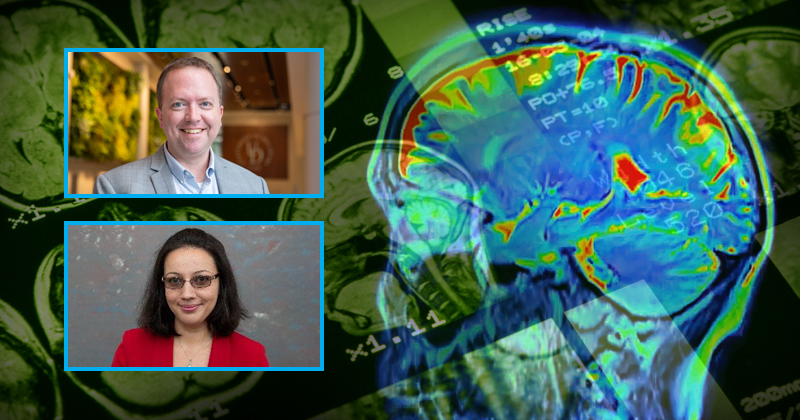


UD Neuroscience Symposium celebrates interdisciplinarity
Photo illustrtion by Cindy Dolan March 06, 2024
Faculty and graduate students showcase the advances of the interdisciplinary neuroscience program
Our brains are staggeringly complex organs that govern our thoughts, memories, emotions, sensory experiences, communications and movements. They also regulate every process within our bodies. Recently, the Interdisciplinary Neuroscience Symposium at the University of Delaware provided a platform for faculty, graduate students and prospective students to delve into the panorama of neuroscience research being conducted at UD. The goal of this research? To unravel the mysteries of these complex structures, which consist of approximately 86 billion neurons, 85 billion other cells and an astonishing 100 trillion connections.
The event’s keynote speakers, faculty presentations and graduate student posters highlighted research that spanned brain structure and function from development to degeneration and included diverse disorders and diseases, demonstrating why an interdisciplinary approach to neuroscience is a compelling model for scientific discovery.
Roxana Burciu, assistant professor in kinesiology and applied physiology and a keynote speaker, said the very nature of what she studies requires interdisciplinarity to really understand the problem.
“In our research on Parkinson’s disease, we use MRI to understand how brain changes lead to difficulties with everyday movements for people with the disease,” she said. “Because there’s considerable variability in symptoms and their progression stemming from multiple causes, we need a multifaceted approach that transcends traditional disciplinary boundaries.
“Parkinson’s symptoms can be due to genetic predisposition, environmental factors or underlying neurobiological mechanisms — each of these demands a unique investigative lens.”
To read more about the interdisciplinary research presented at the symposium, visit the Graduate College website.
Contact Us
Have a UDaily story idea?
Contact us at ocm@udel.edu
Members of the press
Contact us at 302-831-NEWS or visit the Media Relations website

